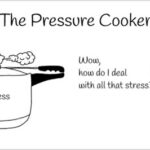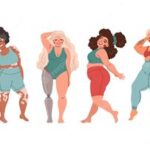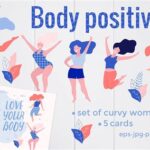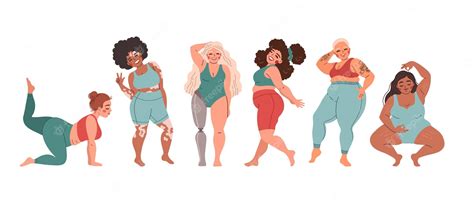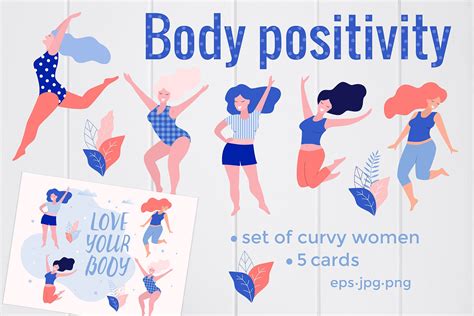
Rejecting outdated fashion norms, a growing body positivity movement encourages mothers to embrace their post-pregnancy bodies and personal style, defying conventional “mom style” rules. The movement challenges the idea that mothers should conform to specific, often restrictive, clothing choices and promotes self-expression and confidence, regardless of body shape or size.
The antiquated notion of a prescribed “mom style” – often characterized by modest, practical, and sometimes unflattering clothing – is facing increased resistance from women who are redefining motherhood on their own terms. This shift is fueled by a desire to maintain individuality and challenge societal expectations that dictate how mothers should look and dress.
“For too long, moms have been told what they can and cannot wear,” says Sarah, a fashion influencer and mother of two. “It’s time we reclaim our bodies and our style, and show the world that motherhood doesn’t mean sacrificing who we are.” Sarah’s sentiments echo a larger trend of mothers rejecting limiting stereotypes and embracing fashion as a form of self-expression.
This movement is not just about clothing; it’s about challenging the societal pressures placed on mothers to prioritize everyone else’s needs above their own. By embracing body positivity and personal style, mothers are sending a message that self-care and self-expression are essential components of well-being, not selfish indulgences.
The conversation extends beyond mere aesthetics and delves into deeper issues of self-perception and empowerment. Mothers are sharing their stories and experiences online, creating supportive communities where they can find encouragement and inspiration. These online spaces provide a platform for discussing the challenges of navigating motherhood while maintaining a sense of personal identity.
Social media has played a significant role in amplifying this message, with influencers and everyday mothers alike using platforms like Instagram and TikTok to showcase their personal styles and challenge conventional norms. These posts often feature mothers wearing clothing that is considered “unconventional” for moms, such as crop tops, mini skirts, and bold prints. The positive response to these posts demonstrates a growing acceptance of diverse styles and body types.
The body positivity movement for mothers also addresses the physical changes that often occur during and after pregnancy. Instead of focusing on weight loss or “bouncing back,” the emphasis is on embracing these changes as a natural part of motherhood. This includes celebrating stretch marks, curves, and other physical transformations as signs of strength and resilience.
One of the key messages of this movement is that there is no one “right” way to be a mother. Each woman’s experience is unique, and she should be free to express herself in a way that feels authentic and empowering. This includes making choices about clothing and style that reflect her individual personality and preferences.
The movement’s impact is felt across various demographics, with women of all ages, sizes, and backgrounds joining the conversation. This inclusivity is crucial to ensuring that all mothers feel represented and supported. By showcasing a diverse range of body types and styles, the movement challenges narrow beauty standards and promotes a more realistic and inclusive portrayal of motherhood.
The challenge to “mom style” rules also intersects with discussions about ageism and sexism. Often, societal expectations for mothers are rooted in outdated beliefs about what women “should” look like and how they “should” behave. By rejecting these expectations, mothers are asserting their right to define their own identities and challenge these ingrained biases.
Several fashion brands and retailers are beginning to recognize this shift and are responding by offering more diverse and inclusive clothing options. This includes expanding size ranges, featuring mothers of different body types in their marketing campaigns, and creating clothing that is both stylish and comfortable.
However, there is still work to be done. The body positivity movement faces ongoing challenges, including the pervasive influence of diet culture and the constant pressure to conform to unrealistic beauty standards. It is important to continue to challenge these pressures and to create a culture that truly values and celebrates diversity.
Ultimately, the movement is about empowering mothers to feel confident and comfortable in their own skin. By embracing their bodies and their personal style, mothers are not only improving their own well-being but also setting a positive example for their children. They are demonstrating that self-acceptance and self-expression are essential values, regardless of age or life stage.
The fight against “mom style” is not about promoting vanity or superficiality. It’s about reclaiming agency over one’s own body and identity. It’s about challenging the notion that motherhood requires sacrificing personal style and embracing a uniform of frumpy clothing. It’s about celebrating the beauty and strength of mothers in all their diverse forms.
As one mother put it, “I’m not just a mom; I’m also a woman with my own passions and interests. My clothing is a reflection of who I am, and I refuse to let anyone tell me what I can and cannot wear.” This sentiment encapsulates the essence of the body positivity movement for mothers – a movement that is empowering women to embrace their individuality, challenge societal expectations, and redefine what it means to be a mother in the 21st century.
The impact of this movement extends beyond individual women, influencing cultural perceptions and challenging ingrained biases. By normalizing diverse body types and styles, the movement is creating a more inclusive and accepting society for all. This is particularly important for young girls, who are often bombarded with messages about unrealistic beauty standards. By seeing mothers who are confident and comfortable in their own skin, these girls are more likely to develop a positive body image and a healthy sense of self-esteem.
Moreover, the movement challenges the notion that mothers should be relegated to the sidelines of society, sacrificing their personal identities for the sake of their children. By asserting their right to self-expression, mothers are demonstrating that they are active and engaged members of society, with their own unique contributions to make. This is particularly important in a culture that often undervalues the contributions of mothers.
The body positivity movement for mothers is not a trend; it’s a fundamental shift in attitudes and beliefs. It’s a recognition that mothers are individuals with their own needs and desires, and that they deserve to be celebrated and supported in all their diversity. As the movement continues to grow and evolve, it will undoubtedly have a profound impact on the lives of mothers and on society as a whole.
The rejection of “mom style” rules is part of a broader cultural conversation about body image and self-acceptance. This conversation is not limited to mothers; it encompasses all individuals who have been marginalized or excluded due to their appearance. By challenging these exclusionary norms, the movement is creating a more inclusive and equitable society for all.
The importance of self-care for mothers cannot be overstated. Motherhood can be incredibly demanding, both physically and emotionally. By prioritizing self-care, mothers are better able to care for their children and maintain their own well-being. Embracing body positivity and personal style is one way that mothers can practice self-care and nurture their sense of self.
“I realized that taking care of myself wasn’t selfish, it was essential,” shared a mother on an online forum dedicated to body positivity. “When I feel good about myself, I’m a better mom.” This statement highlights the interconnectedness of self-care and motherhood. By prioritizing their own well-being, mothers are not only benefiting themselves but also creating a more positive and nurturing environment for their children.
The movement also encourages mothers to be role models for their children, teaching them to love and accept their own bodies. By demonstrating self-acceptance and self-love, mothers can help their children develop a healthy body image and a strong sense of self-esteem. This is particularly important in a culture that often promotes unrealistic beauty standards.
“I want my daughter to grow up knowing that she is beautiful just the way she is,” said a mother who advocates for body positivity. “I want her to love and appreciate her body, regardless of what anyone else says.” This sentiment reflects the desire of many mothers to create a more positive and accepting world for their children.
The body positivity movement for mothers is a powerful force for change, challenging societal norms, promoting self-acceptance, and empowering women to embrace their individuality. As the movement continues to grow and evolve, it will undoubtedly have a lasting impact on the lives of mothers and on society as a whole. The message is clear: motherhood doesn’t mean sacrificing personal style or self-expression. It’s about embracing the journey, celebrating the body, and redefining what it means to be a mom in the 21st century.
The amplified voice of mothers rejecting the “mom style” mandates is not just a trend; it’s a statement. It’s a declaration that motherhood is a multifaceted experience, and personal style is an integral part of a woman’s identity that deserves to be celebrated, not suppressed. As the movement gains momentum, it’s reshaping perceptions, challenging stereotypes, and fostering a more inclusive and empowering environment for mothers everywhere.
This shift is not limited to clothing choices alone; it extends to a broader understanding of self-care and well-being for mothers. For too long, mothers have been conditioned to prioritize the needs of others above their own, leading to burnout and a loss of personal identity. The body positivity movement encourages mothers to reclaim their time, energy, and individuality, recognizing that self-care is not a luxury but a necessity for maintaining physical and emotional health.
The emphasis on self-expression is also a powerful tool for challenging societal expectations and redefining the role of mothers in the modern world. By embracing their personal style, mothers are demonstrating that they are not simply caregivers but also individuals with their own passions, interests, and aspirations. This is particularly important for young girls, who are often bombarded with messages that limit their potential and reinforce traditional gender roles. By seeing mothers who are confident, stylish, and empowered, these girls are more likely to believe in their own abilities and pursue their dreams.
The rejection of “mom style” rules is also a rejection of ageism and sexism. Often, societal expectations for mothers are rooted in outdated beliefs about what women should look like and how they should behave as they age. By challenging these expectations, mothers are asserting their right to define their own identities and challenge the ingrained biases that limit their opportunities.
In conclusion, the body positivity movement for mothers is a transformative force that is reshaping perceptions, challenging stereotypes, and empowering women to embrace their individuality. It’s a movement that is not only improving the lives of mothers but also creating a more inclusive and equitable society for all.
FAQ:
1. What is “mom style” and why is it being challenged?
“Mom style” traditionally refers to a set of clothing and appearance expectations placed on mothers, often characterized by modesty, practicality, and a perceived lack of fashion-forwardness. This often includes items like mom jeans, comfortable but less stylish shoes, and clothing that prioritizes function over fashion. It is being challenged because it’s seen as restrictive and perpetuates the idea that mothers should sacrifice their personal style and individuality after having children. It reinforces outdated stereotypes and limits self-expression, implying that mothers should conform to a narrow, often unflattering, aesthetic.
2. How is the body positivity movement redefining motherhood?
The body positivity movement is redefining motherhood by encouraging mothers to embrace their post-pregnancy bodies and personal style. It challenges the notion that mothers need to “bounce back” to their pre-pregnancy shape or conform to specific clothing choices. Instead, it promotes self-acceptance, self-care, and the idea that mothers should feel confident and comfortable in their own skin. This movement is about celebrating the beauty and strength of mothers in all their diverse forms, emphasizing individuality and self-expression as essential components of well-being. It advocates for mothers to prioritize their own needs and desires, recognizing that self-care is not a luxury but a necessity for maintaining physical and emotional health.
3. What role does social media play in this movement?
Social media plays a significant role in amplifying the body positivity movement for mothers. Platforms like Instagram and TikTok provide a space for mothers to share their stories, experiences, and personal styles. Influencers and everyday mothers use these platforms to showcase diverse body types and challenge conventional norms, posting images and videos that feature “unconventional” clothing choices and celebrating body positivity. These online spaces create supportive communities where mothers can find encouragement, inspiration, and validation. Social media helps normalize diverse body types and styles, challenging narrow beauty standards and promoting a more realistic and inclusive portrayal of motherhood.
4. How are fashion brands responding to the changing attitudes toward “mom style”?
Fashion brands are beginning to recognize the shift in attitudes toward “mom style” and are responding by offering more diverse and inclusive clothing options. This includes expanding size ranges to cater to different body types, featuring mothers of various shapes and sizes in their marketing campaigns, and creating clothing that is both stylish and comfortable. Some brands are also collaborating with influencers and mothers to design clothing lines that reflect the needs and preferences of this demographic. This response reflects a growing awareness of the purchasing power and influence of mothers and a desire to cater to their desire for clothing that is both functional and fashionable.
5. What are the key messages of the body positivity movement for mothers?
The key messages of the body positivity movement for mothers include:
- Embrace your body: Accept and love your body as it is, including stretch marks, curves, and other physical changes that occur during and after pregnancy.
- Prioritize self-care: Recognize that self-care is essential for well-being and make time for activities that nurture your physical and emotional health.
- Express your individuality: Embrace your personal style and wear clothing that makes you feel confident and comfortable, regardless of societal expectations.
- Challenge stereotypes: Reject outdated notions about what mothers should look like and how they should behave.
- Be a role model: Teach your children to love and accept their own bodies and to embrace their individuality.
- Self-acceptance is not selfish: It is critical for all around well-being of the mother.
- Motherhood is not a sacrifice of self: One can continue to be the same individual, or find a better version of themselves after becoming mothers.
